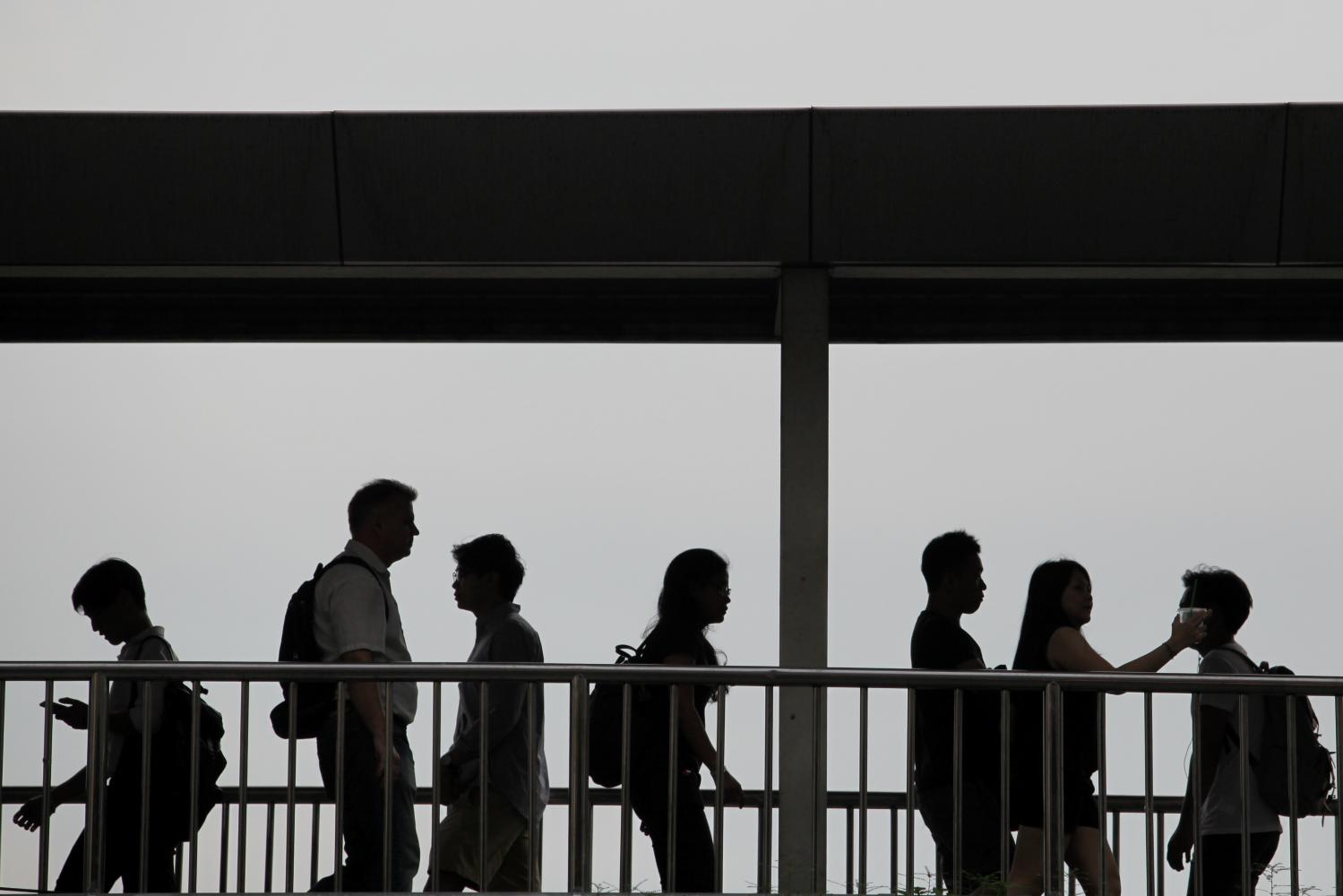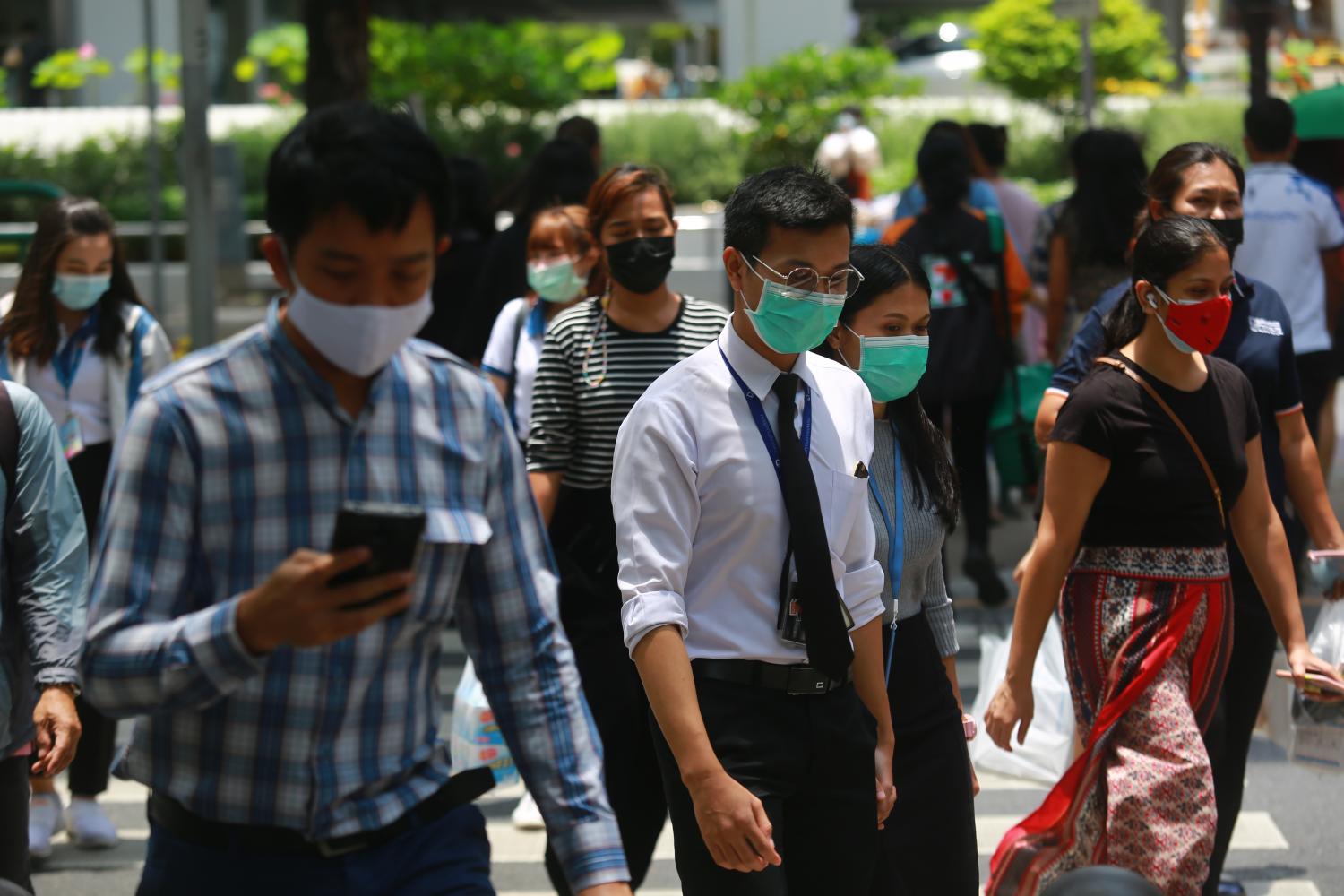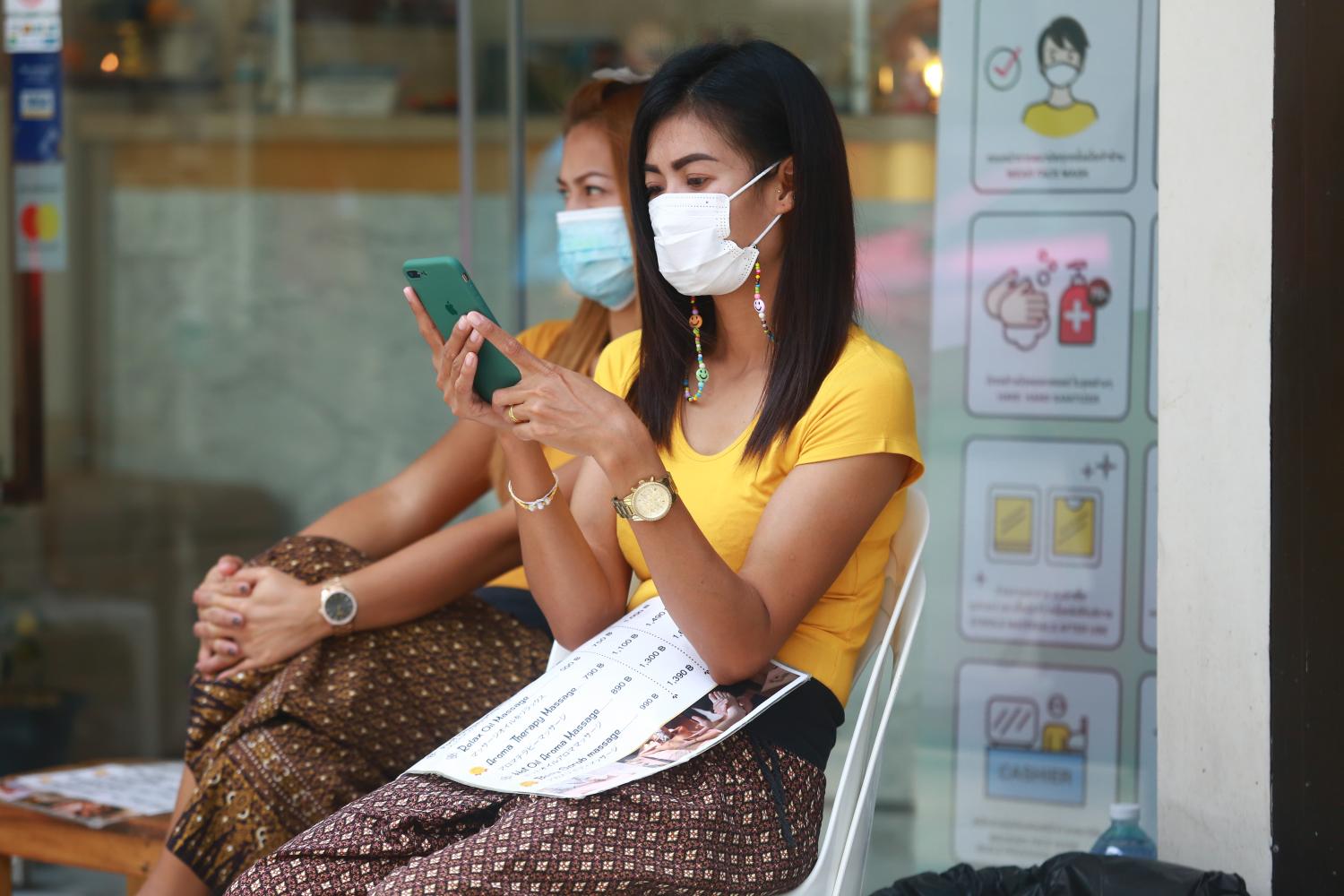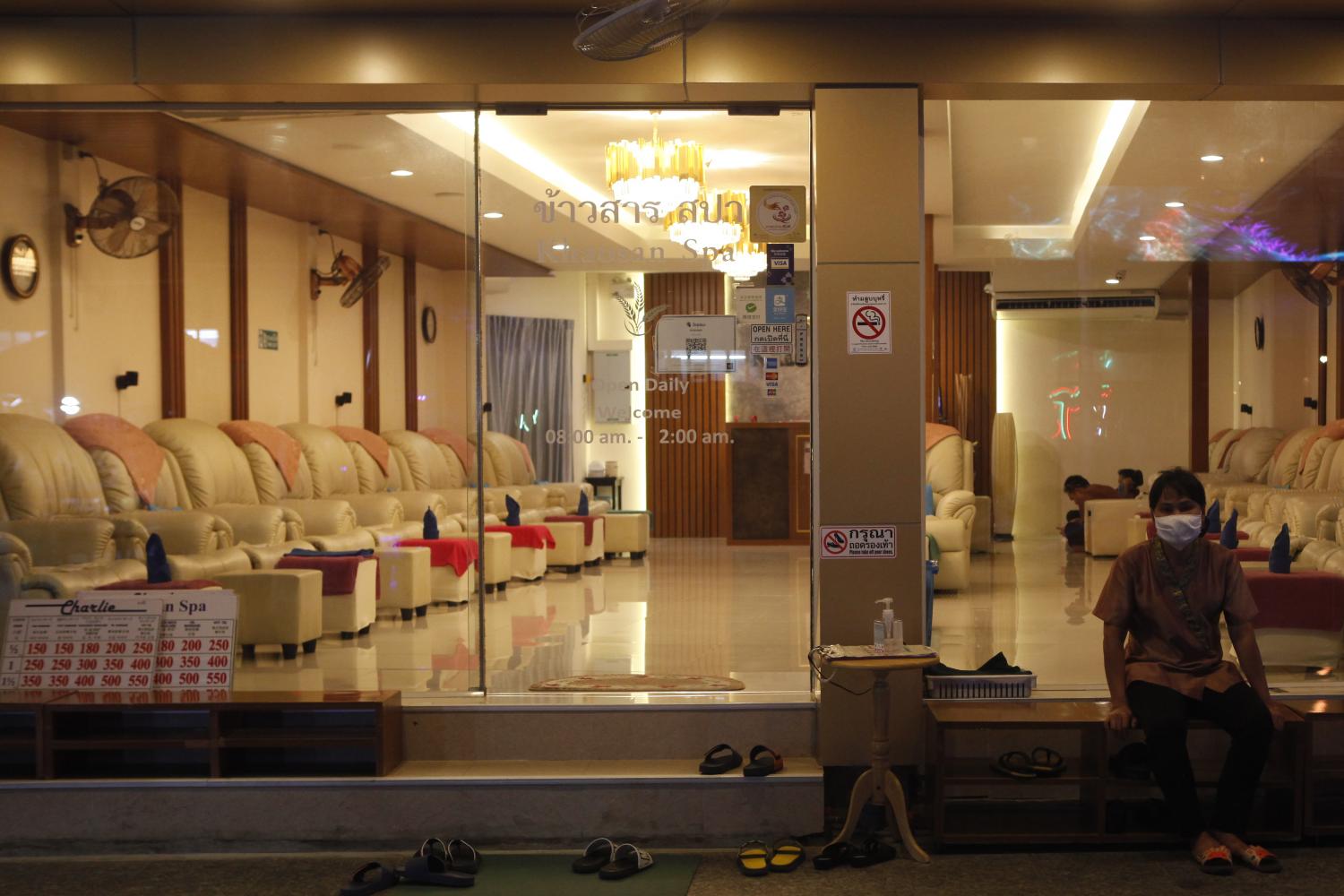
The third wave of Covid-19 brought the number of daily infections and deaths to a record high, and threatens to do the same for unemployment figures.
The National Economic and Social Development Council (NESDC) sounded the alarm last Tuesday on soaring unemployment rates in 2021. One sign is a 9.1% contraction of GDP for micro and small and medium-sized enterprises (MSMEs).
The NESDC's tally of 758,000 unemployed in the first quarter has many concerned about whether they will be next on the unemployment list as businesses continue to shut down.

COST-CONSCIOUS COMPANIES
Three waves of outbreaks in Thailand have caused employers to base their management of old and new staff on budgetary concerns.
Some companies have avoided hiring full-time employees, while others are looking for a new way to apply the government's work-from-home guidelines in a context other than healthcare, according to the Employers' Confederation of Thai Trade and Industry (EconThai).
Employers are implementing new employment tools, along with more investment in digital technology, for the sake of business survival.
"Since the first outbreak, many companies have been hiring more freelancers to reduce costs," said EconThai vice-chairman Tanit Sorat. "This type of employment best matches the situation."
The pandemic first hit Thailand early last year, causing the government to enforce broad lockdown measures countrywide to curb the viral spread.
The measures, including urging people to work from home and imposing a nighttime curfew to restrict travel, managed to subdue daily infection rates, but the success came at a huge economic cost.
Many workers were furloughed or even laid off as businesses shuttered.
The second outbreak flared up in Samut Sakhon, a major industrial hub, in mid-December last year, while the third wave erupted in Bangkok last month, dealing a further blow to the already reeling economy.
The work-from-home guidelines returned, but now they are viewed not only as a measure to slow disease transmission.
"Many companies want their employees to work at home for a longer period to save money on office rent as well as water and electricity bills," said Mr Tanit.
He said this can make it more difficult for job-seekers to work at companies of their choice.
Yet candidates with great performance and good skills still stand a good chance of landing jobs as employers become more selective, demanding capable staff to help drive their companies, said Mr Tanit.
Skilled workers with expertise in technology, e-commerce and e-learning will remain essential to the economy, said Visit Ongpipattanakul, managing director of Trinity Securities.
He said jobs in several sectors have been threatened by new technology and innovation for many years, such as traditional banking (disrupted by mobile), property (distribution moving online) and cars and auto parts (advancements in robot and electric vehicle technology).
"People with IT and e-commerce skills can penetrate all industries, even tourism with the coming of e-travel," said Mr Visit.
"On the other hand, physical jobs in tourism are likely to suffer a prolonged slump, which is expected to persist at least until mid-2022."

Office workers wear face masks during lunch hour on Silom Road. The government has a new scheme to help MSMEs retain employees. Somchai Poomlard
SUCCUMBING TO FINANCIAL ILLS
Though many companies are making strenuous efforts to adjust their work and employment, they may be destined for permanent shutdown, said the Federation of Thai Industries (FTI).
Supant Mongkolsuthree, FTI chairman, acknowledged the government's attempts to launch a series of relief packages for business and civic sectors, but this does not mean every company will survive one of Thailand's worst economic crises.
"Even the co-payment scheme may not be adequate," said Mr Supant.
The scheme, launched last year by the Centre for Economic Situation Administration, supports 260,000 new graduates' employment by subsidising 50% of their wages for 12 months, but caps the maximum subsidy at 7,500 a month per person.
The programme is scheduled to end on Sept 30 this year.
The scheme drew support from both the FTI and EconThai, but some of its conditions caused concern.
Mr Tanit previously voiced apprehension over the condition that required participating companies to not lay off more than 15% of their staff. He disagreed with workforce reduction because employers already benefit from the scheme.
Late last year the government agreed to adjust some conditions, including extending the co-payment period until the end of this year, according to media reports citing deputy government spokeswoman Rachada Dhnadirek.
Assessing the scheme from Oct 1 to Dec 18 last year, officials found many new graduates could not join because one condition required them to not be members of the Social Security Fund. Some graduates were listed in the social security system for 1-6 months after they left their jobs during the Covid-19 crisis.
"The co-payment scheme still requires more adjustment," said Mr Supant.
Boonyanuch Boonbumrungsub, chief marketing officer at Food Passion Co, the operator of Bar-B-Q Plaza, said although the chain has been devastated by the pandemic for just over one year, the company managed to retain its employees.
"Employment of permanent staff remains intact," she said. "Only part-time staffers have been affected. It was necessary to cut part-time workers because of the lockdown measures for two months."
According to Ms Boonyanuch, shedding employees is the last thing the company wants to do and it has no plans to lay off existing employees.
"It is quite difficult to build a working culture for new staff and the cost of skill training for new staff is very high," she said.
The company is using the pandemic as an opportunity to upgrade the skills of its workers to improve their efficiency, said Ms Boonyanuch.
Food Passion had sufficient funds to carry on, while diversification to non-barbecue businesses such as Moo Tod God Kor, a new fried pork chain, helped offset lower revenue from Bar-B-Q Plaza restaurants, she said.
The FTI and EconThai said many companies do not want to lay off employees as they view them as an asset, following years of work to sharpen their skills.
"But the private sector is exhausted," said Mr Supant. "Many companies want to retain employees, but they cannot shoulder the burden and may need to resort to a new round of layoffs."
The Labour Ministry reported in January, more than 100,000 people lost their jobs or were suspended from work during the second wave, following the closure of more than 6,000 businesses in 28 red-zone provinces.
"Even with the third wave of Covid-19, we shouldn't ignore the idea of re-hiring capable former employees," said Mr Supant.

The government's co-payment scheme was introduced last year by the Centre for Economic Situation Administration to support employment of new graduates. The scheme is scheduled to end on September 30 of this year. Wichan Charoenkiatpakul
NEW MEASURES BEING HATCHED
Danucha Pichayanan, the NESDC secretary-general, said the government realises the threat of higher unemployment and is preparing additional measures to enable MSMEs and tourism-related operators to retain their staff and create jobs for new graduates.
The new measures are to be funded by the 500-billion-baht loan approved by the cabinet on May 18.
Some 300 billion baht is set aside for funding relief schemes for people and MSMEs affected by the prolonged Covid-19 crisis, he said.
According to Mr Danucha, the agency is working with the FTI, the Thai Chamber of Commerce and the Thai Bankers' Association to design aid schemes that focus primarily on MSMEs to enable them to continue their operations.
Another 170 billion baht from the new loan is slated to rehabilitate the economy, especially to stimulate investment in fiscal 2022, which starts on Oct 1.
With working from home adversely affecting sit-in dining at restaurants and food chains, the government may have to roll out assistance schemes, he said.
Mr Danucha said MSMEs should be offered subsidies if they agree to retain their employees and hire new graduates.

Employees wearing face masks sit outside an empty massage parlour in Bangkok. Somchai Poomlard
TOURISM HOPE
Tourism operators, which have suffered mightily since the first Covid-19 outbreak, are pinning their hopes on the plan to reopen Thailand, which will determine employment rates in the industry.
"Unemployment rates in the tourism industry largely depend on the Phuket sandbox, the government's big bet to restart tourism," said Chamnan Srisawat, president of the Tourism Council of Thailand.
If the Phuket sandbox happens as planned, followed by other areas in October, unemployment should be less than 2.5 million, said Mr Chamnan.
However, if the reopening plan cannot lure back tourists and the country misses another high season, around 3 million tourism-related workers might lose their jobs during the second half of the year, from a total of 4.3 million tourism workers, he said.
A new outbreak would cause more setbacks and trigger employers to offload their wage burden, even as operators want to keep experienced workers in case the market rebounds, said Mr Chamnan.
To preserve jobs, tourism workers should enrol in upskilling and reskilling programmes during the slowdown to learn segments such as digital marketing. The government should support these programmes by providing daily expenses of 300 baht per day, he said.
The most needed measure is the co-payment scheme, said Mr Chamnan. To access this financial aid from the government, tourism operators must continue operations, but pay employees half their wages while the subsidy chips in the other half.
He said it is important for the government to offer financial assistance until vaccine rollouts can cover 70% of the population to increase travel confidence from both domestic and international markets, helping operators maintain business.
Marisa Sukosol Nunbhakdi, president of the Thai Hotels Association, said employment will recover once there is more international demand to fill hotel supply. Hoteliers have to conduct risk management and a break-even analysis before determining whether to call employees back to work, she said.
However, a tourism rebound is very difficult to predict because of uncertainty on vaccines. In addition to Phuket, which has advanced a plan for reopening, other locations still have vague details about operational plans, said Mrs Marisa.
At present, there are less than 400,000 hotel workers, compared with 860,000 prior to the outbreak.
She said some hotel workers aged 50 and older may retire to stay with their families, while younger workers could decide to change to careers that offer more salary. Only those who love service jobs will return to the hospitality business, said Mrs Marisa.

Employees wearing face masks sit outside an empty massage parlour in Bangkok. Nutthawat Wicheanbut
